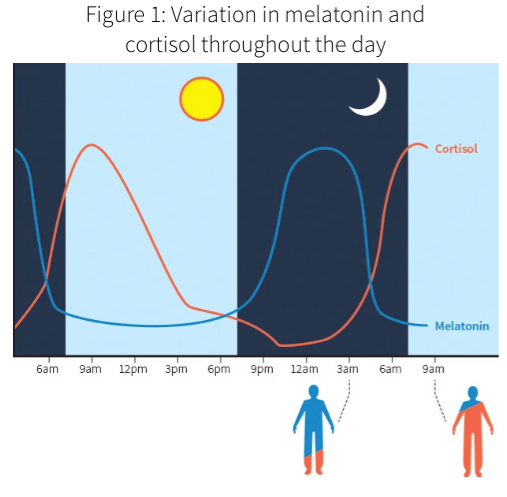Variation In Melatonin & Cortisol throughout the Day

“iPad use consistently suppressed night-time levels of MELATONIN, which were significantly lower than when paper books were used.
In fact, reading PAPER books resulted in NO suppression. Once the lights were dimmed, the melatonin onset peak was shifted to a later time period with iPad use when compared to paper book use.
Effectively, the iPad artificially inflated the length of the “day” perceived by the brain, by about an hour and a half! This shift in circadian rhythm for iPad users happened even though the room lights were dimmed.
…if you have to use a tablet/laptop/phone at night, it may
be helpful to dim the screen as low as possible, while still being able to read. One way to get around this is using blue-light blocking glasses, which have amber lenses and hence make you look quite silly (but also smart and innovative compared to friends/mates that may mock you.)
These have been shown to allow for melatonin production, and hence improve sleep quality and potentially even mood. If you can’t or won’t use these glasses, but still want to use your device at night, consider free programs such as “f.lux” for laptops or other alternatives for mobile devices. These automatically make the screen dimmer and more red as the sun sets. Some apps can even lower screen brightness more than a device allows on its own.
…Most all modern back-lit portable electronic devices emit high-energy blue light. The human eye is sensitive to blue light exposure, leading to suppressed melatonin production.
This suppression of melatonin production causes a shift in sleep patterns. Hence, sleeping out of line with your natural endogenous sleep patterns may lead to chronic sleep deficiency. Chronic sleep deficiency and consistently impaired melatonin production may increase the risk of many inconveniences, disorders and diseases.” – ERD issue 4
